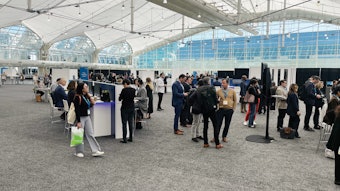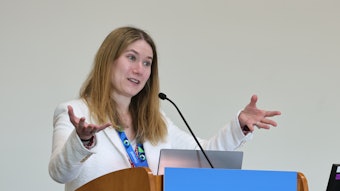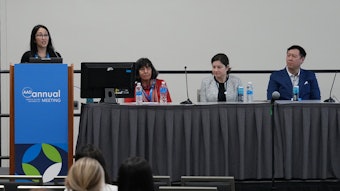Itch: Rooted in research
Brian S. Kim, MD, MTR, FAAD, honored for his translational research, presented the 2024 Marion B. Sulzberger, MD Memorial Award and Lectureship.

Despite being such a common complaint among patients, itching has been historically overlooked and its importance in medicine underappreciated. In contrast to pain, there are no FDA-approved medications specifically indicated to treat chronic pruritus. Even in conditions where chronic itch is a defining hallmark of the disease, such as atopic dermatitis and chronic spontaneous urticaria, itch has not been properly assessed as a primary endpoint in clinical trials.
“Why haven’t we been talking about itch?” said Brian S. Kim, MD, MTR, FAAD, who gave the 2024 Marion B. Sulzberger, MD Memorial Award and Lectureship during Sunday’s session, P151 – Plenary, for his work on itch biology. The lectureship honors early- or mid-career physician-scientists who have made significant contributions to the understanding of clinical medicine via their basic research.
Itching for answers
“Itch biology is at the forefront of a basic and translational revolution in the field of somatosensation,” said Dr. Kim, who is the Sol and Clara Kest professor of dermatology and director of the Mark Lebwohl Center for Neuroinflammation and Sensation at the Icahn School of Medicine at Mount Sinai Health in New York City. During his presentation, Dr. Kim delved deeply into the topic, providing an overview of the pathogenesis of itch (pruritus) to describe why we itch, how scratching helps alleviate it, and how recent seminal discoveries in basic itch biology from clinical trials are leading to a better understanding of itch neuroimmunology.
“There are many itch disorders, including atopic dermatitis, notalgia parasthetica, uremic pruritus, and Duhring’s disease, of which itch is a central symptom. There’s a lot of hope for these disorders because there are many pathways that are being uncovered,” Dr. Kim said.
Anti-itch therapeutics
“A very small sensation called itch has taught us a lot about sensation in other parts of the nervous system,” Dr. Kim said. He highlighted how translational research on itch biology has led to anti-itch drug developments, including JAK inhibitors for chronic pruritus of unknown origin (CPUO), kappa opioid receptor (KOR) agonists for notalgia paresthetica (NP), and difelikefalin, which is approved for uremic pruritus on dialysis, which suppresses itch by mimicking scratching in a pharmacologic fashion.
Overall, “itch has unveiled new ways to think about sensation, and it’s the tip of the iceberg,” Dr. Kim said. The hope is that breakthroughs in itch biology and successes in clinical trials for chronic pruritus and other conditions with itch as a main symptom will lend insight into other sensory maladies such as cough, headache, reflux, nausea, irritable bowel, and interstitial cystitis.
Dr. Kim will lead the Allen Discovery Center for Neuroimmune Interactions at the Icahn School of Medicine at Mount Sinai, a new multidisciplinary research center that brings together leading experts studying the intersection of immunology and neuroscience, to reshape our understanding of fundamental biology and human disease, with the goal of changing the way we treat chronic diseases.
“We’re moving into a new frontier of itch and neuroimmunology, and how we can transform the future of dermatology,” he said.











